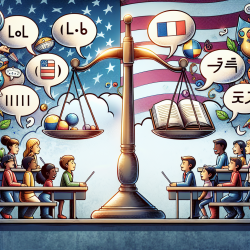As the world navigates the challenges of the pandemic, innovative approaches to education have become more crucial than ever. One such approach is musicking, a concept that intertwines music-making with well-being, as explored in the research article "Heart's Ease: Eudaimonia, Musicking in the Pandemic, and Its Implications for Music Education." This blog will delve into how practitioners can leverage the findings of this research to enhance their skills and create better outcomes for children.
Understanding Musicking and Eudaimonia
The term "musicking" encompasses all activities related to music-making, including performing, improvising, composing, arranging, and conducting. The concept goes beyond the mere production of sound to include the relationships and interactions that occur during a musical event. Eudaimonia, on the other hand, refers to a state of flourishing or well-being. The research suggests that integrating musicking into educational practices can significantly enhance children's well-being.
Key Findings and Their Implications
The study identifies several features of eudaimonia that can be achieved through musicking:
- Ethical Behavior: Encouraging children to engage in music-making activities fosters ethical behavior, including respect for the environment and mutual respect among peers.
- Sense of Meaning and Purpose: Musicking provides children with a sense of purpose, enhancing their overall well-being.
- Autonomy: Allowing children to make choices in their musical activities promotes autonomy and decision-making skills.
- Contemplation: Engaging in music can offer moments of reflection and contemplation, contributing to mental well-being.
- Relationships: Music-making activities can strengthen relationships, both among peers and with the natural world.
Practical Steps for Implementation
To incorporate these findings into your practice, consider the following steps:
- Integrate Nature: Encourage outdoor music-making activities that incorporate natural sounds, fostering a connection with the environment.
- Promote Group Activities: Facilitate group musicking sessions to enhance social interactions and mutual respect.
- Encourage Autonomy: Allow children to choose their musical activities, fostering a sense of independence and decision-making skills.
- Use Technology: Leverage online platforms for virtual music sessions, ensuring that children can continue their musical education even during lockdowns.
Encouraging Further Research
While the findings are promising, further research is needed to explore the long-term benefits of musicking in educational settings. Practitioners are encouraged to document their experiences and share their findings to contribute to this growing field.To read the original research paper, please follow this link:
Heart's Ease: Eudaimonia, Musicking in the Pandemic, and Its Implications for Music Education.










